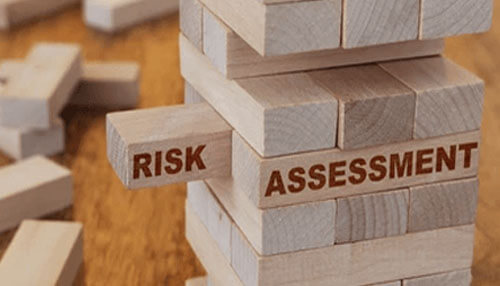Safety and health is the most crucial component for all industries when it comes to promoting the overall well-being, both for the employees and employers, as everyone wants to operate in a safe and secure environment.The business’s legal and moral obligation is to secure that its employees are protected in the workplace. Providing a healthy and safe work environment protects employees from work-related injuries or contracting occupational illnesses and can also decrease the substantial amount of monetary costs associated with workplace accidents; it can also reduce turnover and absences and increase employee morale and productivity. Depending on the nature of the business, specific sectors could be subjected to rigorous safety regulations, such as those in manufacturing or production.
Nonetheless, regardless of the nature of the business, having to impose and comply with the regulations governing workplace safety is a vital part of the business, more specifically with its internal control.
Preventive Measures
Numerous workplace accidents occur regularly, one of which is the use of unsafe jacks and jack stands. The responsibility for using such equipment in the workplace must fall on or be shared between the employers and employees. However, it is the primary obligation of the business to ensure that every piece of equipment in the workplace is safely functioning.
As a result, this necessitates that the business takes preventative measures to ensure the safety of its employees.To effectively prevent workplace accidents, businesses must understand and assess the risks that may be imposed in their day-to-day business operations, mainly dealing with various types of hazards, such as biohazards.
Tips For Startup Businesses Safety Regulations
If you are starting up your business, one of the most critical factors that you should account for is complying and strictly adhering to the safety regulations that have been established within your local government. In addition to being mandated by law, having a healthy and safe environment is an intelligent business decision for various economic reasons.
There are a variety of compelling reasons for any business to strive and uphold a safe working environment. Aside from the basic human desire to prevent suffering and pain, workplace injuries can completely devastate a business’s operations. Hence, when it comes to passing safety regulations, this article has some advice for you.
Keep A Certification
Certifications can demonstrate that a business is concerned about the safety of its employees and that it is also concerned about the safety of its customers and the general public. Businesses are frequently required to execute and implement safety procedures to obtain certification or to maintain third-party certifications.
With this, businesses with a proven safety record will save money on debt insurance premiums. Moreover, safety procedures for small businesses operating in the energy industry may have a varied level of certification than they do for small businesses operating in the retail industry.
Legal Liability Claims
Safety precautions can assist businesses in reducing their legal liability as well as their operating costs. However, employees may have fewer legal remedies than customers, as numerous employees are asked to sign an arbitration agreement, enabling the business to constrain the amount of money they lose to incidents involving safety procedures.
Customers who encounter an injury within the premises of the business have the right to file a lawsuit against the business; however, if the business is employing safety precautions within its premises, the customer may have trouble proving such a claim.
Suppose a customer trips and falls on a freshly mopped floor. If the business has put up a good warning sign to prevent this, the customer will have difficulty proving that the business was negligent.
Risk Assessment
When starting a business, you should be able to anticipate the challenges you may face. This is a critical factor in determining what potential risks of safety your business may impose on your employees, as well as employers. Risks may include dangers in workplace automation, such as biohazards and AIDS.
Knowledge Check
A specific government unit is the one exercising control over workplace safety regulations. Regardless of the operation of your business, you should be highly knowledgeable concerning your responsibilities and what safety issues are involved. From then on, adhere and comply with what is mandated by the law when establishing a business.
If you are to violate the applied safety regulations, consequences can be severe. Not only will you deal with the consequences of the incident, but you may have to be charged with fines and other monetary costs. The same rules apply to all businesses. Thus, it is beneficial to have a broad understanding of the legal foundations of the safety regulations.
Final Thoughts
Starting up a business may be a challenging endeavor. Still, it is always essential to adhere and to comply with the established safety regulations that have been set forth by the government, as well as to create a safe and secure environment for your employees.




